
+91 8095511877

+91 8095511877
Scoliosis surgery helps to correct the side-ward curve on your child’s spine. Spinal fusion surgery is the most common type of scoliosis surgery.
Scoliosis is a sidewards curving of the spine. A normal spine will be straight or have a slight curve towards one side. But in a person with scoliosis, this curve is more and will exceed ten degrees.
Scoliosis can be present at birth or develop later in life. In adults, scoliosis usually develops due to the degeneration of the spine.If your child has scoliosis that is more than 30 degrees, it is possible to have problems in the future.
One of the most common issues of scoliosis is a chest deformity. Due to this deformity, the chest cavity will become smaller than usual. Thus it reduces the space available for the heart and lungs. So the heart will have to work harder, and you need to exert while breathing.
Scoliosis can also affect the posture as well as the gait of your child. Children with scoliosis also suffer from chronic back pain. Severe scoliosis can also be a cause of social and emotional problems due to problems with an abnormal posture.
Mild forms of scoliosis will not cause many problems. But if your child has moderate to severe scoliosis, he or she will need some kind of treatment.
Scoliosis can increase in severity during the growth spurt phases in children. In boys, this will be between the ages of 12 to 16, and in girls between 10 to 14.
Some of the signs that help you to identify scoliosis in your child are
Scoliosis may be present at birth or may develop later in life. There are different types of scoliosis according to the cause of the disease. Most types of scoliosis in children occur without reason.
The different types of scoliosis according to the cause are
Scoliosis can also occur due to certain diseases. They include neurofibromatosis, Marfan’s syndrome, etc. Infections and fractures of the spine can also cause scoliosis as a result.
The main complication of scoliosis is the extent of the bend of the spine. If the bend is more than 40 degrees, your child will have a few problems.
Though there are various treatments for scoliosis, surgery is by far the most effective one.
The condition increases in severity in the growth phase of your child. It is better to have the surgery before the growth is complete. The spine will be more flexible in those who are younger, and the flexibility reduces with age. A flexible spine is easy to operate on and will give better results.
Your child will have better results if they go for the surgery at the earliest. In boys, it is ideal to have the surgery before the age of sixteen, while in girls, the ideal age is below 14.
Your child will need surgery if the bend of the spine exceeds 40 degrees. Surgery in these cases can prevent further bending of the spine. Also, it is possible to avoid most of the complications associated with it.
The main goal of the surgery is to make the spine as straight as possible. It helps to make the posture, gait, and the overall appearance more visibly pleasing. Also, surgery will help to prevent your child’s curve from getting larger.
Before surgery
Before the operation, your child will have various tests. X-rays and MRI scans of the spine and the back will help the surgeon to identify the amount of correction necessary.
The surgery team will consist of spine surgeons, anesthetists, neurologists, and specially trained nurses. Before the surgery, your surgeon will talk to you in detail about various aspects of the operation. You will thus have correct picture regarding the procedure, recovery as well as the possible results.
Your child will have either open surgery or minimally invasive surgery. Open surgery will need a large incision along the length of the vertebrae to be fused. In minimally invasive surgery, there will only be small incisions along the sides of the vertebrae.
You will have to take your child to the hospital the day before surgery. He or she will not have any food in the night.
During the surgery
Your child will have general anesthesia, which means he or she will be asleep during the procedure.
The surgeon will then make incisions depending on the type of operation. In open surgery, the incision will be a long one along the vertebrae to be fused. It helps the surgeon to have a clear view of the area.
In a minimally invasive surgery, the incisions will be small. The surgeon will make the incisions on the sides of the vertebrae.
An instrument called a tubular retractor will help to expose the spine. The surgical team will use a microscope to view the vertebrae, which will help the surgeon to have a good view.
Your surgeon will then join your child’s vertebrae together with the help of screws, plates, and hooks. All these help to keep the vertebrae joined together and in position
The next step is to place the bone grafts in between the vertebrae. The surgeon will take the bone grafts from the pelvic bone of your child. In some situations, the graft will be from an outside source. The grafts are then secured using bone cement.
After this, the surgeon will close the incision using sutures or surgical staples.
The nursing staff will then take your child to the observation room. It will take some time for him or her to come out of anesthesia. Once fully awake, your child will go back to the hospital room.
After surgery
The surgery can make your child feel very tired and exhausted. It is natural and will get better within a day or two. If there is any pain, the doctor will give medicines to control it.
You should encourage your child to move around in the hospital room. Ask him or her to have short walks. It helps to improve blood circulation, which aids in faster recovery and wound healing.
Your child can have the food and drinks that he or she wants. Foods rich in fiber can help to relieve constipation.
The hospital stay will be for about 4 to 5 days, depending on the recovery.
Once back home, your child can freely move around. But you need to careful to prevent him or her from doing a few things for a few days. They should not bend at the hips, lift weights, and jump around.
You should teach your child about wound care. It helps to prevent infections and aid in faster healing.
Going back to school will happen in about six weeks. In some, this will be even faster at four weeks. Light exercises, running, playing games, etc. can start from 6 months. Contact sports where there is a chance for trauma to the surgical site will have to wait longer.
Scoliosis can also create wardrobe issues. Clothes will not fit as it should due to the tilt to one side. Due to this, your child may avoid social situations. Embarrassment due to an abnormal posture can lead to emotional issues.
The surgery will help to improve the posture and appearance of a child. It will give a big boost to their confidence, making them emotionally stronger.
Spinal fusion surgery for scoliosis does not place any severe restrictions on your child. He or she will be able to participate in any physical activity, like any other child


This article has been reviewed for medical correctness and relevance by
Dr Srinivasa N
Dr. Srinivasa. N is an an accomplished orthopaedic spine surgeon offering highest standard of care to patients affected with spinal disorders. He is currently working as a consultant spine surgeon at Tejasvini hospital,Mangalore, Karnataka. His areas of expertise include endoscopic spine surgeries, spinal decompression and fusion surgeries, surgeries for scoliosis andkyphosis, vertebroplasty
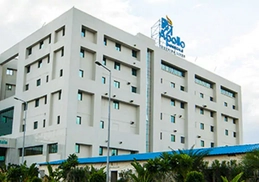
Apollo Chennai
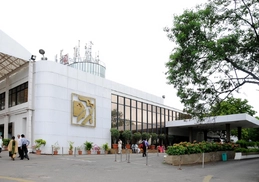
Apollo Health City
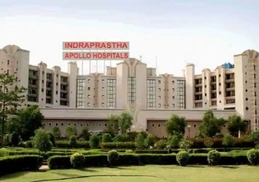
Apollo Indraprastha

Apollo Mumbai
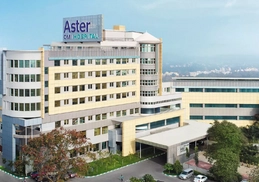
Aster CMI
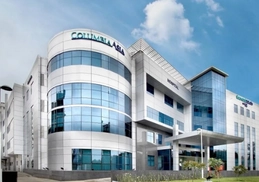
Columbia Asia
Frequently Asked Questions
What are the early signs of scoliosis?
Is scoliosis surgery dangerous?
How much does scoliosis surgery cost in India?
Can scoliosis be treated without surgery?